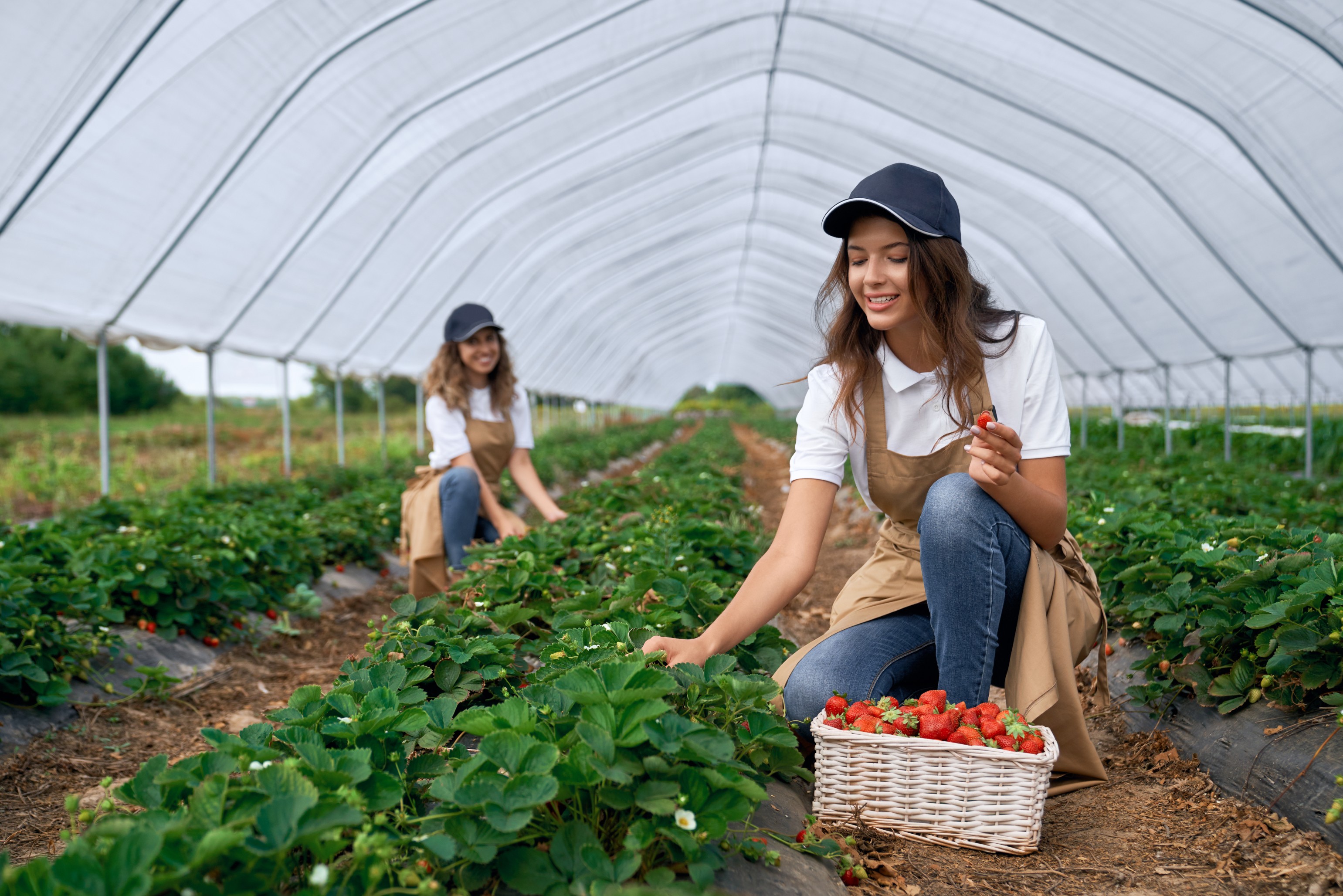How Organic Farming Contributes to a Healthier Planet

As the world confronts the growing threats of climate change, soil degradation, and biodiversity loss, organic farming has emerged as a powerful solution for creating a healthier planet. Unlike conventional farming, which often relies on synthetic inputs that degrade the environment, organic farming prioritizes ecological balance, soil health, and sustainable resource use.
For farmers like Ravi, who owns a 50-acre organic farm in India, transitioning to organic methods was not just a business decision—it was a commitment to preserving the environment for future generations. Over the past decade, Ravi has seen how organic farming practices have improved the health of his land and contributed to the global movement toward sustainability.
In this blog, we explore the ways in which organic farming contributes to a healthier planet, from reducing greenhouse gas emissions to promoting biodiversity and soil conservation.
Agriculture is responsible for a significant portion of global greenhouse gas emissions, particularly methane, nitrous oxide, and carbon dioxide. Conventional farming practices, such as the overuse of synthetic fertilizers and intensive livestock farming, contribute to these emissions. Organic farming, however, offers a more sustainable alternative.
Lower Emissions Through Natural Inputs
Ravi remembers the days when he relied heavily on synthetic fertilizers to boost crop yields. These fertilizers, while effective, were also responsible for releasing large amounts of nitrous oxide, a potent greenhouse gas. When he transitioned to organic farming, he began using natural inputs like compost and organic manure, which significantly reduced the emissions from his farm.
Unlike synthetic fertilizers, which can lead to the release of harmful gases, organic inputs improve soil fertility without contributing to the atmospheric buildup of greenhouse gases. Ravi’s farm is now not only more sustainable but also more resilient to climate variability, thanks to healthier soils.
Carbon Sequestration—Storing Carbon in the Soil
Organic farming plays a critical role in carbon sequestration, the process by which carbon dioxide is absorbed by plants and stored in the soil. By enhancing soil organic matter through practices like composting, cover cropping, and reduced tillage, organic farmers like Ravi help capture and store carbon in the soil, where it can remain for centuries.
Studies have shown that organic farming systems sequester more carbon than conventional systems, making them a key part of the solution to global warming. Ravi’s farm, with its lush cover crops and rich compost, acts as a carbon sink, helping mitigate the impacts of climate change.
One of the core principles of organic farming is promoting biodiversity, which is essential for maintaining healthy ecosystems. Unlike monoculture farming, which focuses on a single crop and depletes biodiversity, organic farms prioritize crop diversity, wildlife habitats, and soil life.
Crop Diversity—A Natural Defense Against Pests
Ravi’s farm is a vibrant mosaic of crops, each contributing to the health of the overall system. By planting a variety of crops, Ravi has reduced the risk of pest infestations, which are more common in monoculture systems. Diverse cropping systems also improve soil fertility, reduce erosion, and create a balanced ecosystem where beneficial insects can thrive.
In conventional farming, chemical pesticides are often used to manage pests, but they can also harm beneficial insects, birds, and other wildlife. On Ravi’s organic farm, natural pest control methods, like companion planting and introducing predator insects, maintain the balance between pests and their natural enemies without the need for harmful chemicals.
Supporting Wildlife and Pollinators
Organic farms provide a refuge for wildlife, particularly pollinators like bees and butterflies, which are essential for food production. Ravi has noticed an increase in bee populations on his farm since he stopped using chemical pesticides. By creating a pesticide-free environment, organic farms like his help support these critical species, which play a vital role in pollinating crops and maintaining biodiversity.
Healthy soil is the foundation of any successful farm, and organic farming is rooted in practices that build and maintain soil health. Conventional farming often depletes soil nutrients through overuse of synthetic inputs and aggressive tilling, leading to soil erosion and reduced fertility. Organic farming, on the other hand, focuses on nourishing the soil to ensure long-term productivity.
Composting and Natural Fertilizers
Ravi’s farm relies on composting and the use of organic fertilizers like green manure to build soil fertility. These natural inputs improve soil structure, increase water retention, and provide essential nutrients that promote plant growth. Over the years, Ravi has seen his soil become darker, richer, and more capable of supporting high crop yields without the need for chemical fertilizers.
Preventing Soil Erosion
One of the most pressing environmental issues facing conventional agriculture is soil erosion. Tilling the land too frequently, as is common in conventional farming, disrupts soil structure and leaves it vulnerable to erosion by wind and water. On Ravi’s organic farm, reduced tillage and the use of cover crops protect the soil from erosion, preserving its integrity for future planting seasons.
Water scarcity is a growing concern in many parts of the world, and agriculture is one of the largest consumers of freshwater. Organic farming techniques help conserve water by improving soil’s ability to retain moisture and reducing water pollution from chemical runoff.
Soil Moisture Retention
Thanks to organic farming practices like mulching and cover cropping, Ravi’s soil retains moisture for longer periods. This means he can use less water to irrigate his crops, even during dry spells. Organic matter in the soil acts like a sponge, soaking up water and making it available to plants over time.
Reducing Water Pollution
One of the hidden benefits of organic farming is its role in preventing water pollution. Conventional farming often leads to the runoff of chemical fertilizers and pesticides, which contaminate rivers, lakes, and groundwater. By avoiding synthetic inputs, Ravi’s farm reduces the risk of water contamination, contributing to cleaner waterways and healthier aquatic ecosystems.
Organic farming is not just a trend—it’s a necessary shift toward more sustainable food production that benefits both the planet and its people. Farmers like Ravi are leading the way, showing how organic practices can enhance soil health, conserve water, support biodiversity, and reduce greenhouse gas emissions.
However, making the transition to organic farming can be challenging, especially for farmers who lack access to the right tools, knowledge, or financial resources. This is where platforms like AiDOOS come in. AiDOOS provides farmers with access to experts who can guide them through the process of adopting organic farming practices, from improving soil health to managing water resources.
By connecting farmers with the right expertise, AiDOOS empowers them to implement organic farming methods that contribute to a healthier planet. Whether it’s finding the best natural fertilizers, adopting water-saving technologies, or learning about crop diversity strategies, AiDOOS is helping farmers create more sustainable and resilient agricultural systems for the future.

By redesigning packaging, exploring reusable models, investing in smart tracking, and leveraging the VDC model for execution, beverage manufacturers can reduce their environmental footprint while boosting their brand relevance and operational resilience.

Even the most capable in-house IT teams often fall short when it comes to minimizing downtime. While Managed Services solve much of the downtime problem, the VDC model supercharges it with flexibility, scalability, and domain-specific expertise.